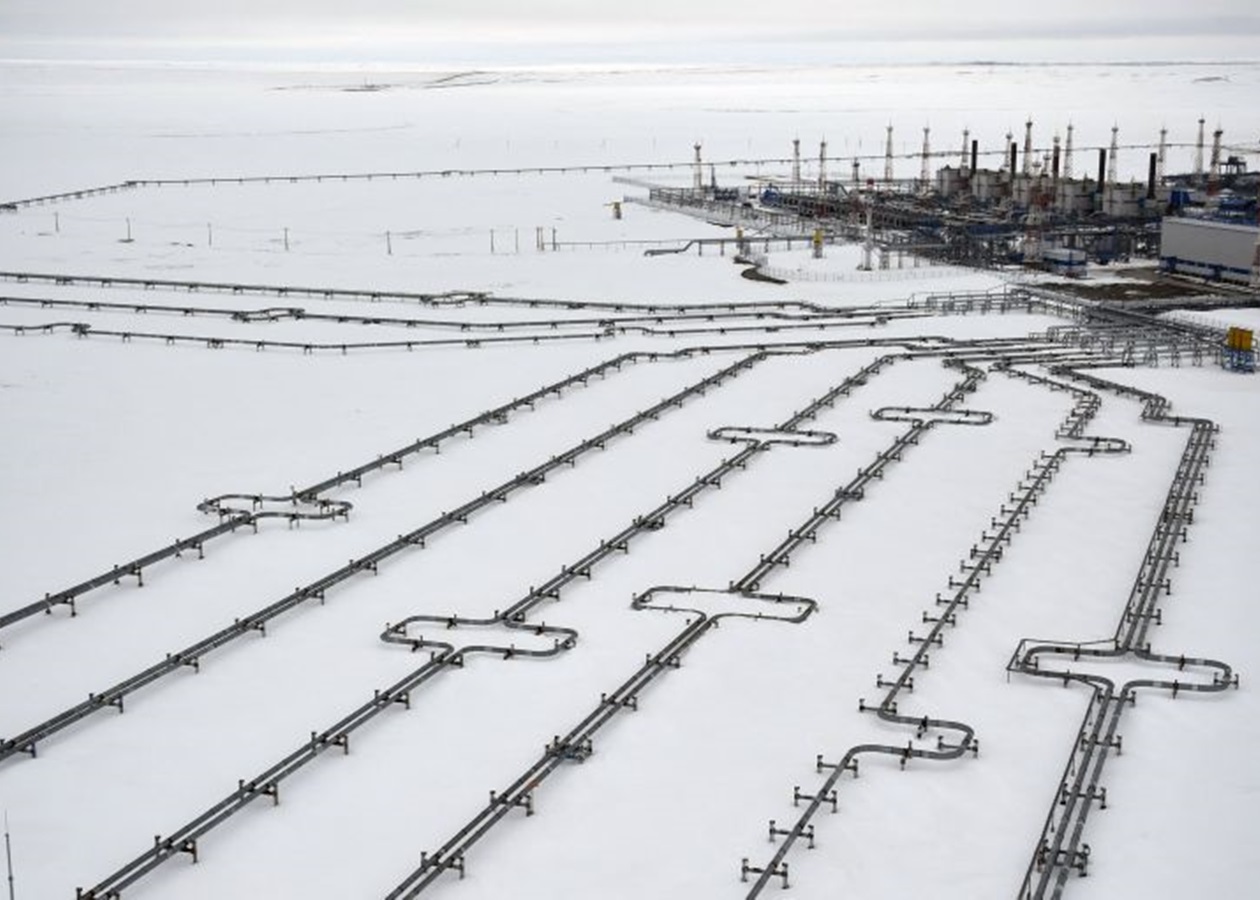Russian oil companies operating in the Arctic are facing serious problems due to another round of US sanctions. The Arctic, where about a quarter of all Russia’s oil reserves are located, has become the epicenter of economic pressure on the country. As reported by Reuters, the situation threatens to halt production and accumulate millions of barrels of unsold oil.
Arctic oil under sanctions: key issues
The new US sanctions have affected at least 15 tankers used to transport Russian Arctic oil, as well as two floating storage facilities – “Umba” and “Kola”. These vessels facilitated the transfer of oil from small tankers to larger Aframax or Suezmax class ships.
According to sources cited by Reuters, the tankers sanctioned were specially built to operate in Arctic conditions. They cannot be quickly replaced as similar ships are not produced in series.
Unresolved logistic crisis
Sanctions are leading to the accumulation of millions of barrels of unsold oil in storage facilities with limited capacities. Furthermore, transporting Arctic oil to Russian refineries is impossible. This oil was initially intended for export, and the Russian pipeline infrastructure does not allow for its processing.
Extraction volumes and sales prospects
Arctic oil supplies around 300 thousand barrels per day, which accounts for approximately 10% of Russia’s total maritime oil exports. Losing the ability to sell it creates significant pressure on the Russian oil industry.
India and China, which were previously the largest buyers of Russian oil, have already stated that they are not willing to accept raw materials from sanctioned tankers. Indian refineries are considering purchasing American WTI crude oil, further complicating the situation for Russia.
Conclusion: Can the Russian economy withstand?
The economic pressure created by the new US sanctions may lead to a significant reduction in oil production in the Arctic. Stopping the export of this strategic raw material not only intensifies Russia’s financial difficulties but also jeopardizes the functioning of an entire industry.
Oil, which was once the main source of income for the country, is now becoming its weak point. Whether Russia can find a way out of this crisis remains a big question.


